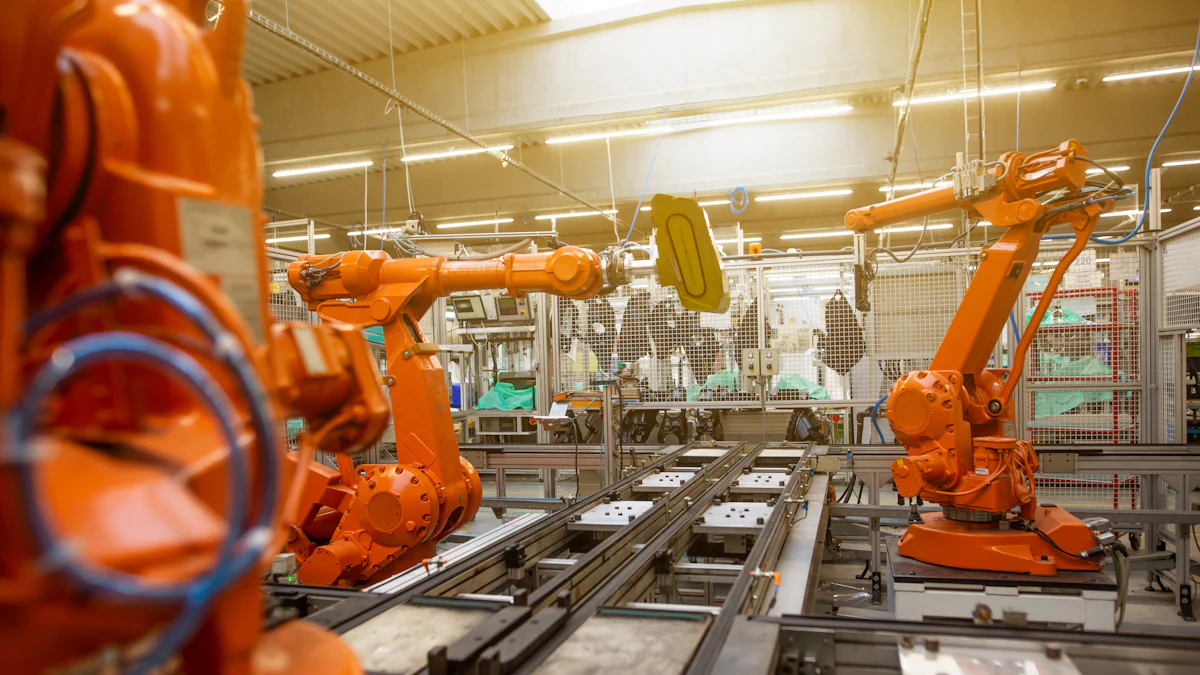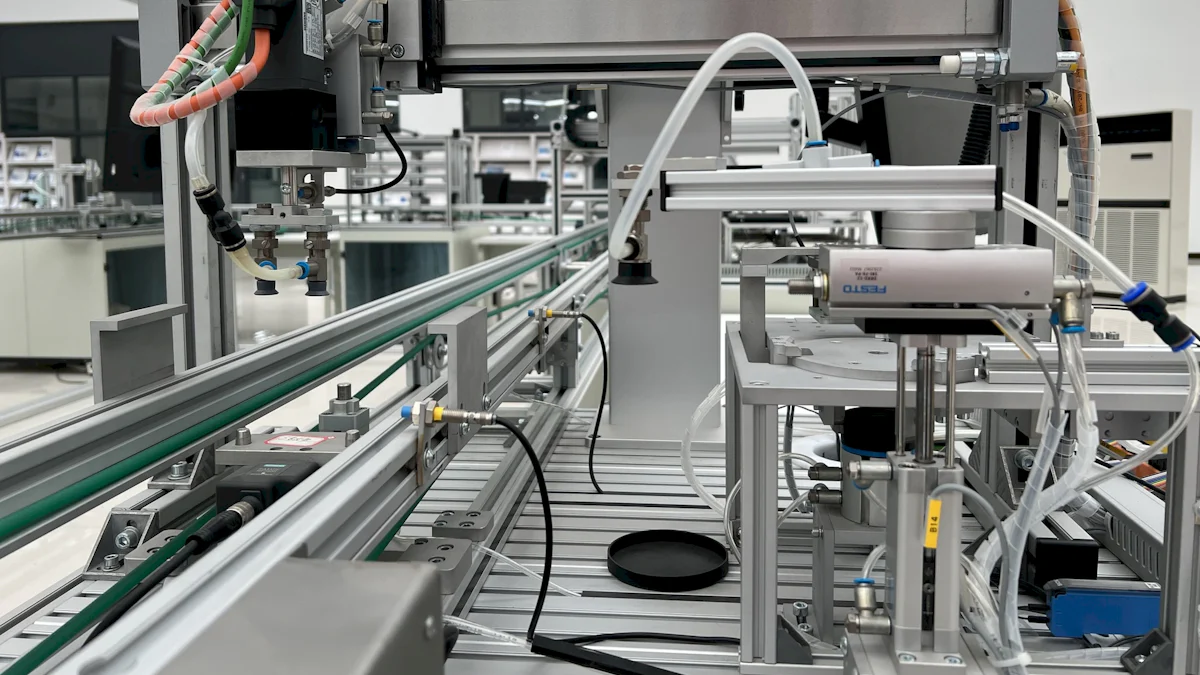
News

Variable frequency drives (VFDs) play a crucial role in controlling motor speed and power, enhancing the efficiency of machinery in various industries. The use of VFD in sugar industry operations is particularly beneficial, as it helps save energy and reduce costs significantly. For instance, modern VFDs can cut energy consumption by up to 50%, which is especially advantageous for equipment like pumps and fans commonly used in sugar production. Additionally, the application of VFD in sugar industry processes contributes to environmental sustainability by lowering CO2 emissions and saving over 30% of energy in pumping systems. These benefits highlight the importance of VFDs in optimizing performance, reducing expenses, and supporting eco-friendly practices.
Key Takeaways
VFDs help sugar mills save up to 60% energy. This lowers costs and makes work more efficient.
Adding VFDs makes machines last longer and work better. This reduces repair costs and machine failures.
VFDs are good for the environment by cutting CO2 emissions. They support green practices in making sugar.
Applications of VFD in Sugar Industry

Making boilers more efficient
Boilers are important for making steam in sugar production. Adding medium voltage VFDs to boilers saves energy. For example, VFDs in ID fans can cut power use by 47%. Lowering flue gas temperature by 22°C boosts boiler efficiency by 1%. This also reduces fuel use by 1.2%. These changes save money and help the environment by cutting emissions.
Better performance for fans and blowers
Fans and blowers keep air moving in sugar mills. VFDs help them work better by controlling speed exactly. This saves over 15% energy in milling. They also make machines last longer and need less fixing. Soft starts protect parts from damage, making operations smoother.
Saving energy with pumps
Pumps are key in separating sugar and other steps. VFDs let pumps run at the best speed, saving up to 60% energy. This cuts costs and makes work more efficient. VFDs also control flow and pressure well, keeping product quality steady.
Helping sugarcane milling and pretreatment
Cane mill drives and other tools work better with VFDs. They improve sugar extraction by 0.1% and cut power use by 15%. In pretreatment, VFDs make shredders and conveyors more reliable. This makes handling materials easier and boosts productivity.
Improving centrifugals and conveyors
Centrifugal machines and conveyors are key for separating sugar. VFDs slowly increase speed, protecting motors and making them last longer. They also save over 30% energy in pumps and 15% in milling. By reducing wear, VFDs lower repair costs and make operations more reliable.
Energy Savings and Environmental Impact
Cutting energy use in sugar mills
Using VFDs in sugar mills saves a lot of energy. Pumps, which are very important in sugar making, can save up to 60% energy with VFDs. Sugarcane milling can also save over 15% energy. VFDs control motor speed carefully, stopping energy waste and helping machines work their best. This smart control boosts productivity and lowers costs for the industry.
Reducing pollution
Saving energy also means less pollution in sugar mills. VFDs help by using energy wisely in pumps, fans, and blowers. For example, saving over 30% energy in pumps cuts harmful gas emissions. By using less fossil fuel, VFDs help sugar mills stay eco-friendly. They are key for meeting rules and cutting pollution.
Saving money over time
VFDs save money for sugar mills in the long run. Pumps can save up to 60% energy, and sugarcane milling saves over 15%. VFDs also protect machines by keeping pressure steady and reducing wear. This lowers repair costs and keeps machines working longer. The table below shows the main benefits:
By using VFDs, sugar mills can save money, work better, and stay profitable for years.
Case Study Insights on VFD in Sugar Industry
Example of VFD use in a sugar mill
A sugar mill in Cuba used the INVT GD5000 medium voltage VFD. This project showed how VFDs help in sugar production. The mill added the VFD to machines that separate sugar from molasses. By adjusting motor speed and power, the VFD saved energy and reduced machine wear. It also made operations more reliable and cut repair costs. This example shows how VFDs can make old sugar mills work better and be eco-friendly.
Results: saving energy, better operations, and quick payback
The Cuban sugar mill saved a lot of energy with the VFD. Machines that spin sugar used 30% less energy. Other systems used 20% less power. These savings lowered costs and paid back the investment quickly. The VFD also reduced machine damage, making parts last longer. The mill had fewer breakdowns and smoother operations. These results show how VFDs improve efficiency and profits in sugar mills.
Tips and best practices
Measure power input and output. Use tools to check voltage, current, and frequency. Look for issues like poor power quality or distortion.
Pick VFDs that fit the job, like for spinning machines or other systems. This helps save the most energy.
Keep up with regular checks and fixes to avoid problems and keep things running well.
These steps help sugar mills get the most out of VFDs and enjoy long-term benefits.
Best Practices for Using VFDs
Checking if VFDs fit the process
Before using VFDs, check if they suit the task. Processes needing speed control or handling changing loads work best with VFDs. For example, sugarcane milling with feeders and filters saves energy with VFDs. Crystallization pumps, conveyors, and centrifugal machines also work better with VFDs. Finding these chances helps use VFDs where they save the most.
Picking the right VFD for each job
Choose a VFD based on the machine and its job. Different steps like shredding, drying, or milling need specific VFD setups. For example:
Shredding: Use VFDs for shredders and conveyors.
Milling: Use VFDs for feeders, hoists, and pumps.
Separation: Use VFDs for centrifugal machines and scrapers.
Drying: Use VFDs for hoists and conveyors.
Matching the VFD to the job saves energy and protects machines.
Keeping VFDs in good shape
Regular care keeps VFDs working well and avoids problems. Good practices include:
Look for rust, water, or dirt on VFDs.
Clean vents and panels with a vacuum.
Check wires and tighten them if loose.
Update software to keep it working right.
Make sure fans and coolers are clean.
Watch how VFDs work and write down issues.
Keeping VFDs clean stops dust and rust. Tight wires keep them running smoothly. These steps make VFDs last longer and work better in sugar mills.
Variable frequency drives (VFDs) help sugar mills work better. They save energy, cut costs, and make machines last longer. The table below shows their main benefits:
Using VFDs helps sugar mills stay competitive and eco-friendly for the future.
FAQ
Why use VFDs in sugar mills?
VFDs save energy by controlling motor speed. They cut energy use by 60%. This lowers costs, boosts efficiency, and makes machines last longer.
Can old machines use VFDs?
Yes, VFDs can be added to old machines. Checking compatibility is important. This helps sugar mills upgrade without buying new equipment.
How do VFDs help the environment?
VFDs use less energy and cut carbon emissions. They improve motor performance. This helps sugar mills follow eco-friendly rules and goals.
Please give us a message